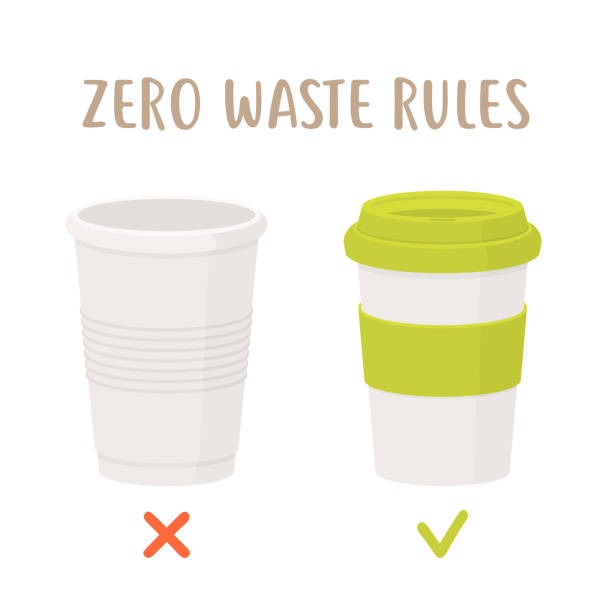Biodegradable paper cups offer several significant environmental benefits over traditional plastic (often polyethylene-coated) ones: Reduced Pollution and Litter Impact: Biodegradable cups, especially those made from PHA or PLA, break down more readily in the environment. PHA-based cups can degrade in natural conditions, including soil and seawater, thereby minimizing persistent litter and reducing the threat to marine and wildlife. In contrast, traditional plastic cups can persist for decades or centuries, contributing significantly to landfill waste and ocean pollution. Lower Toxicity and Residue: When biodegradable cups decompose, especially those made from natural polymers, they leave little to no harmful chemical residues behind. Traditional plastics may fragment into microplastics, which are hazardous to ecosystems and can enter food chains. Renewable Resource Utilization: Many biodegradable cups are produced from renewable resources such as corn starch, vegetable oils, or other plant-based materials, lessening dependence on fossil fuels. Traditional plastic cups are typically made from petroleum-derived polymers, contributing to the depletion of non-renewable resources. Composting and Circular Economy Support: Some biodegradable paper cups (notably those designed for home or industrial composting) can contribute to organic waste streams, generating valuable compost and supporting circular economy goals. Most plastic-lined cups cannot be composted and often contaminate recycling streams. Reduced Greenhouse Gas Emissions: The production and disposal (through composting) of biodegradable cups can result in lower greenhouse gas emissions when compared to the production and incineration/landfilling of plastics, especially if cups are sourced and processed sustainably. Support for Regulatory Compliance: The adoption of biodegradable cups helps organizations and countries meet growing regulations targeting single-use plastic reductions and bans, enabling sustainable business practices. However, it’s important to note that some biodegradable alternatives (like PLA) still need specific industrial composting conditions to fully decompose; otherwise, their environmental advantage is less pronounced. The latest innovations, like PHA cups, aim to overcome this limitation by degrading under broader, real-world conditions.

This is your website preview.
Currently it only shows your basic business info. Start adding relevant business details such as description, images and products or services to gain your customers attention by using Boost 360 android app / iOS App / web portal.
Biodegradable Paper Cups Vs Plastic Coated Paper cups

2025-07-30T06:52:33
Biodegradable paper cups offer several significant environmental benefits over traditional plastic (often polyethylene-coated) ones: Reduced Pollution and Litter Impact: Biodegradable cups, especially those made from PHA or PLA, break down more readily in the environment. PHA-based cups can degrade in natural conditions, including soil and seawater, thereby minimizing persistent litter and reducing the threat to marine and wildlife. In contrast, traditional plastic cups can persist for decades or centuries, contributing significantly to landfill waste and ocean pollution. Lower Toxicity and Residue: When biodegradable cups decompose, especially those made from natural polymers, they leave little to no harmful chemical residues behind. Traditional plastics may fragment into microplastics, which are hazardous to ecosystems and can enter food chains. Renewable Resource Utilization: Many biodegradable cups are produced from renewable resources such as corn starch, vegetable oils, or other plant-based materials, lessening dependence on fossil fuels. Traditional plastic cups are typically made from petroleum-derived polymers, contributing to the depletion of non-renewable resources. Composting and Circular Economy Support: Some biodegradable paper cups (notably those designed for home or industrial composting) can contribute to organic waste streams, generating valuable compost and supporting circular economy goals. Most plastic-lined cups cannot be composted and often contaminate recycling streams. Reduced Greenhouse Gas Emissions: The production and disposal (through composting) of biodegradable cups can result in lower greenhouse gas emissions when compared to the production and incineration/landfilling of plastics, especially if cups are sourced and processed sustainably. Support for Regulatory Compliance: The adoption of biodegradable cups helps organizations and countries meet growing regulations targeting single-use plastic reductions and bans, enabling sustainable business practices. However, it’s important to note that some biodegradable alternatives (like PLA) still need specific industrial composting conditions to fully decompose; otherwise, their environmental advantage is less pronounced. The latest innovations, like PHA cups, aim to overcome this limitation by degrading under broader, real-world conditions.
2025-07-30T06:52:33
Search on this site
Have any question or need any business consultation?
Have any question or need any business consultation?
Contact UsIndigo Impex

Submit Your Enquiry